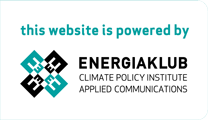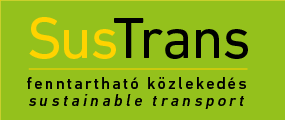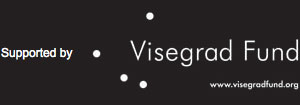Transport roundtable meeting in Budapest
Let’s talk efficiently about energy efficient urban transport!
 On the 13th June Energiaklub took a further step towards associating the concepts of transport and energy efficiency, as not only are these related to each other, but it is within the EU commitments to consciously work towards the reduction of the sector’s energy use in accordance with the 2020 targets. However, our experience with the national strategic planning is that these concepts do not entirely lock into each other.
On the 13th June Energiaklub took a further step towards associating the concepts of transport and energy efficiency, as not only are these related to each other, but it is within the EU commitments to consciously work towards the reduction of the sector’s energy use in accordance with the 2020 targets. However, our experience with the national strategic planning is that these concepts do not entirely lock into each other.
For this reason Energiaklub organized a roundtable meeting for the various representatives of the transport sector to discuss the specific topic of energy efficient urban transport, which, according to an EU funded study, is responsible for the loss of 7% of the EU’s GNP (due to external costs resulting from accidents, congestion, health and environmental damage etc.). Furthermore over 60% of the European citizens live in urban areas and consequently are directly exposed to the negative effects of transport.
The aim of the roundtable meeting was to identify the obstacles and confects, which hinder the development in the energy efficiency and energy saving of urban transport. The twenty participants of the consultation represented a wide range of the sector from the competent ministries and governmental organizations, scientific institutions to transport planning and operator companies, ngo’s etc.
The subtopics of the discussion were themes like the dominance of personal car use, possibilities in vehicle technology, transport planning and operating, and awareness raising. The experts showed a lot of interest in these subtopics, and the discussions led to some important conclusions. On the one hand it became clear that it is very difficult to separately deal with the various aspects of transport, e.g. energy efficiency, environmental protection, CO2 emissions, as these are deeply interrelated, moreover in certain cases some of the aspects may even contradict each other (e.g. the rebound effect of the more environmentally friendly vehicles: since the vehicle consumes less fuel, we travel more). On the other hand it seems as the consensus in defining energy efficiency and energy saving along with the related targets is missing. Consequently the clearing up of these issues should be a cardinal point in transport policy making.
However, in relation to the successfulness of the discussion it can be firmly stated that the participants introduced several practical problems, e.g. the difficulties related to the public procurement of vehicles, the uncertainties around the energy efficiency of modern vehicles, the quality of communication messages about energy efficient transport modes etc.
At the same time several participants came up with reasonable recommendations on how to solve certain issues, which may prove to be very useful, especially when considering the fact that this meeting served as a platform as well for the various stakeholders of the national transport sector to meet with each other.






